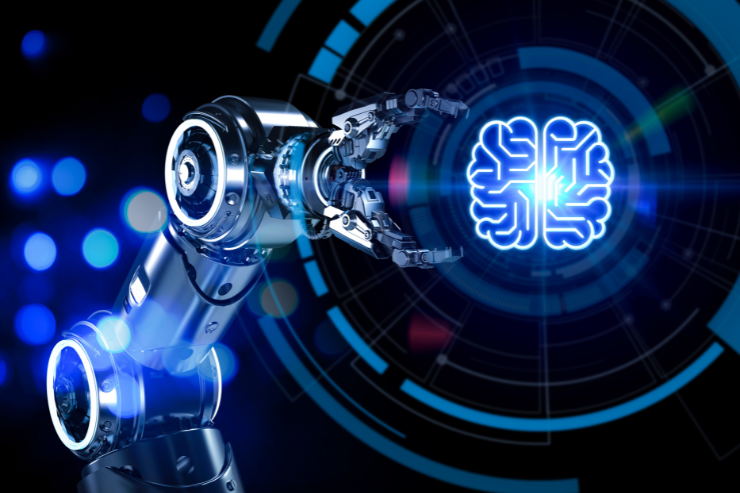Continuous advancements in artificial intelligence (AI) and automation have significantly transformed many industries. AI and automation are popular terms. They are pivotal technologies revolutionizing various industries worldwide. From healthcare and manufacturing to logistics and customer service, AI fundamentally alters how businesses function and provide value to their customers. This transformation is defined by increased efficiency, cost reduction, and creating new opportunities for expansion and innovation.
Artificial Intelligence and Automation
Artificial intelligence creates machines that think and act like humans. With its features, AI drives innovations in various fields, such as finance, manufacturing, healthcare, and many others. Automation uses technology to do tasks. It requires minimum human assistance. It removes transferable functions so people can concentrate on the primary functions, which is sometimes tricky.
Adoption of AI and Automation in Industries:
AI & automation catalyze the transformation in industry through operational efficiency and innovation. They enable companies to cut back on expenditures, speed up procedures, and make better decisions, which makes companies more successful and grow better. Industries impacted by Automation and AI,
- AI in Manufacturing: AI and automation are now crucial for making manufacturing processes more efficient and improving product quality. Nowadays, AI-driven robots perform tasks that were once manual and repetitive, including assembly and quality control. These robots work accurately and steadily, greatly reducing human mistakes and increasing productivity. This proactive strategy minimizes downtime, optimizes maintenance schedules, and prolongs the life span of machinery.
- AI in Healthcare: The healthcare industry is also facing significant changes due to AI.
AI algorithms examine medical images and patient data perfectly. For instance, AI systems can spot early indicators of diseases like cancer in radiological scans, resulting in quicker and more precise diagnoses.
Furthermore, AI-powered virtual assistants and chatbots enhance patient engagement by providing round-the-clock support for appointment scheduling, medication reminders, and general health inquiries.
- AI in Customer Support: AI is also significantly impacting customer services. AI chatbots and virtual assistants answer customer questions all day and night, giving quick replies and letting human agents focus on more complicated problems. AI systems enhance their accuracy and efficiency and learn new things from each interaction. AI analyzes customer data to predict preferences and personalize recommendations, improving customer satisfaction, which increases conversion rates and brand loyalty.
- Future Trends and Challenges: The future of AI and automation appears promising, with progress in machine learning, natural language processing, and robotics. These technologies are fueling further innovation. However, the broad application of these technologies comes with challenges that need to be managed. Ethical considerations, including data security and algorithmic bias, are crucial issues that require careful attention. Furthermore, the potential displacement of human jobs due to automation poses a significant societal challenge that necessitates strategic workforce reskilling and upskilling.
However, these technologies also create many challenges. Ethical issues such as data privacy and algorithm bias are central problems that must be treated carefully for the AI system to be fair and transparent. Artificial intelligence and automation have a lot of potential to transform industries and be more effective. However, the journey of implementing them should be one in a responsible way for the positive impact to be maximized and to reduce harmful risks.
Concluding Remarks!
AI and automation are not only reshaping industries but also defining the future of business. By embracing these technologies, companies can elevate efficiency, enhance customer experiences, and attain a competitive advantage in their respective markets. The key to the successful adoption of innovation lies in balancing technological innovation with ethical responsibility and ensuring access to AI. Companies prioritizing technological advancement and ethical considerations are possibly best positioned to thrive in an increasingly AI-driven world as we move forward.
Also Read:

